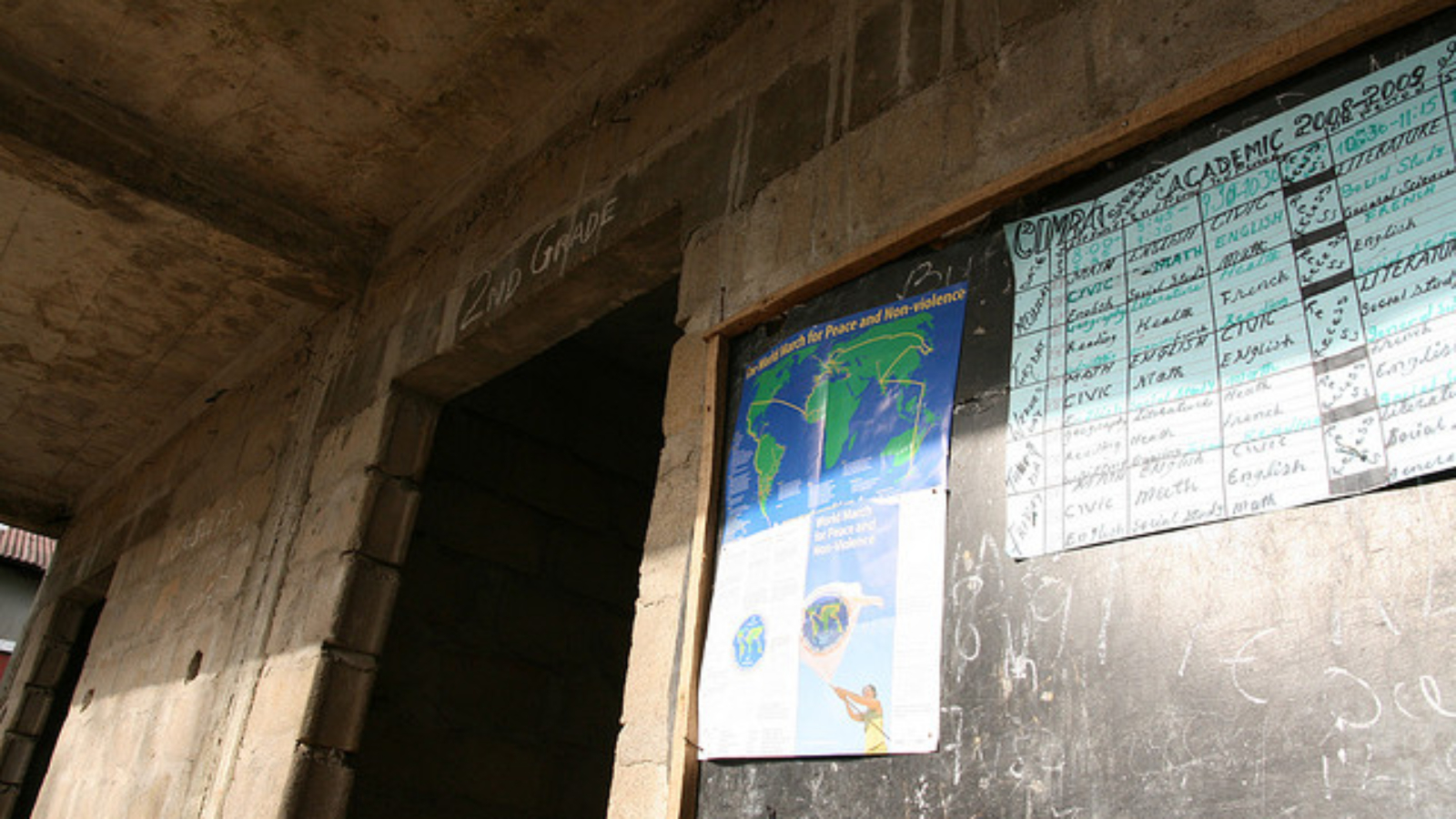This article was previously published on Ebola Deeply.
By Ebola Deeply
The government of Liberia has announced that all schools will officially reopen on February 2, 2015, and Liberian students are expected to return to school. Schools have been closed since July 2014 as a result of the Ebola outbreak, and only a small percentage of students have had access to emergency learning sessions or radio classes.
But although many students are excited about returning to the classroom, some education experts say the timing is not quite right. And some parents say they have not had enough warning to allow them to raise funds for private school fees, or for uniforms and books, during an epidemic that has hit Liberia's economy hard and sparked higher rates of unemployment.
The Ministry of Education has published protocols for a safe school environment, which call for all places of learning to introduce mechanisms for keeping Ebola out of the classroom. They include temperature checks, hand-washing stations, a referral system and the capacity for temporary isolation, should a student fall sick.
Primary education was made free and compulsory in Liberia in 2006, but many students who attend free public schools have to pay for their own uniforms, books and pens. Public schools are often overcrowded, with up to 60 students in one classroom. The Ministry of Education has placed a limit of 45 students per class this year as part of its efforts to keep Ebola at bay. But this means that many public schools are having to turn away students because there are fewer places than usual.

Edwin G. Kwakpae is the county education officer for Grand Bassa, east of the capital, Monrovia. He told Ebola Deeply that he believes the preparations have been adequate. "It's not a surprise," he said. "If the reopening were to be delayed, we might have lots of problems with our kids out there in the streets. We want to create eagerness and vigor among parents, students and teachers."
But Philip Togba, the principal of Jarflor Preparatory School in Brewerville, Montserrado county, disagrees. He fears that student registration numbers at his private school could be low, since so many parents were unable to save money during the height of the outbreak.
“Parents have already started raising concerns that they do not have money to send their children back to school," he said. "So our school management has decided to allow parents to register their children with a promissory note telling the school when they will be able to make the payment. We hope that by doing this, all of our students will come back to school."
Loretta Nortey is a seventh grade student at the nearby private Len Miller School. She is excited to be returning to classes: "We've been out of school for a long time, and we're missing our lessons, our teachers, and our friends. We have missed plenty lessons and we've got to catch up."
Nortey's family may be able to pay her school fees, but other students–or those attending schools that require fees upfront–face a greater challenge. Teachers, too, are in shorter supply than usual; some have found new jobs with NGOs responding to the Ebola outbreak, and others say they lack knowledge on how to handle a case of Ebola in the classroom.
*****
*****
[Photo courtesy of Tamas Csefko and Ebola Deeply]
